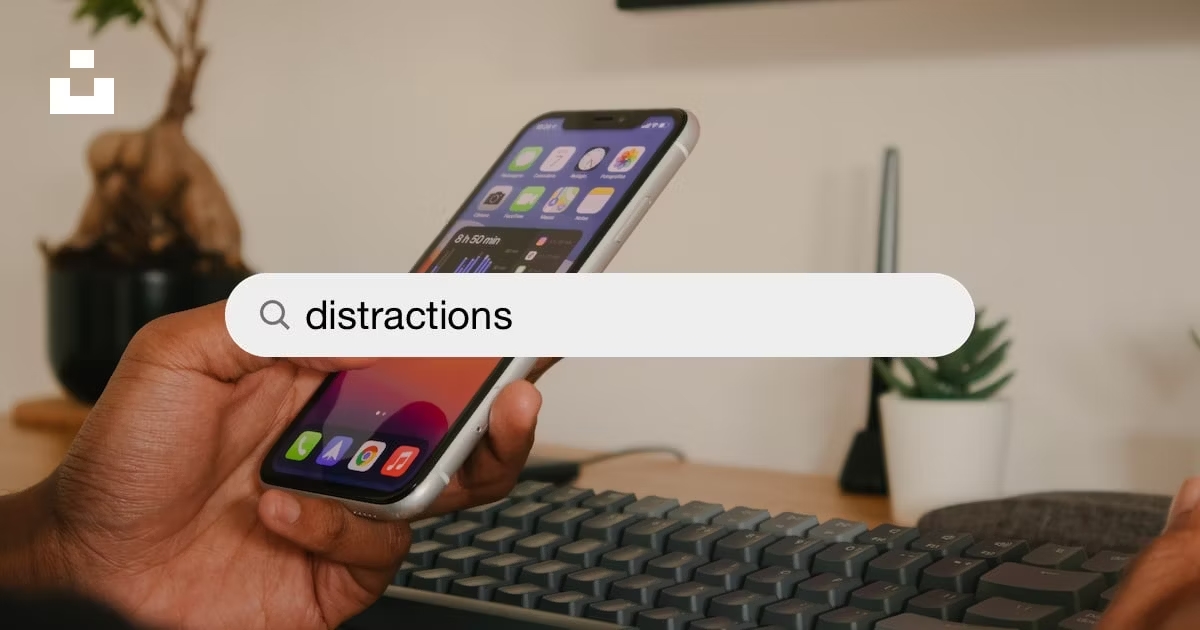
How to Defeat 7 Social Media Distractions?
UPSC aspirants spend months and even years preparing for this UPSC competitive examination, which demands a high level of focus, dedication, and discipline. However, one of the biggest obstacles faced by candidates today is the constant lure of social media distractions. The addictive nature of platforms like Facebook, Twitter, Instagram, and YouTube can easily derail even the most well-intentioned study schedule. In this blog, we will explore the impact of social media on UPSC preparation and provide practical strategies to avoid these Social media distractions and stay on track with your study schedule.
Understanding the Impact of Social Media Distractions
Social media platforms have become an integral part of our daily lives. Their instant gratification and constant updates make them highly addictive, causing us to lose track of time and focus. As UPSC aspirants, it is essential to comprehend the detrimental effects of excessive social media usage. From procrastination to decreased productivity, spending hours on these platforms can significantly hinder your progress in the exam preparation journey.
Creating a Study Schedule
A well-structured road map is the backbone of successful UPSC preparation. To avoid falling prey to social media distractions, it is crucial to create a study schedule that suits your needs and preferences. Set realistic study goals and divide your syllabus into manageable chunks, ensuring a balanced approach to cover all subjects. Allocate specific time slots for study, breaks, and leisure activities to maintain a healthy work-life balance.
Identifying Your Social Media Triggers
To effectively combat social media distractions, it is essential to identify the triggers that prompt you to check these platforms frequently. Common triggers include boredom, stress, or the need for a mental break. Being mindful of these triggers will help you take preventive measures to avoid falling into the social media trap during study hours.
Limiting Social Media Usage
While completely eliminating social media might not be practical or necessary, setting boundaries is crucial. Consider using apps or features that track your social media usage and set daily limits on these platforms. Such measures will not only increase your productivity but also enable you to engage in more meaningful activities during your leisure time.
Creating a Distraction-Free Study Environment
Your study environment plays a vital role in maintaining focus and productivity. Designate a quiet and clutter-free space as your study area. Keep your mobile devices away or turn off social media notifications during study hours. Utilise website blockers to restrict access to social media platforms during critical study periods. By creating a conducive environment, you will be able to concentrate better and make the most of your study time.
Practising Time Management Techniques
Effective time management is key to avoiding social media distractions. The Pomodoro Technique, for example, involves breaking study time into short intervals, typically 25 minutes, followed by a short break. Practising this technique allows you to stay focused and motivated, as well as provide small windows for social media interaction during designated break times.
Staying Accountable and Seeking Support
Staying committed to your study schedule can be challenging, especially when dealing with social media temptations. Forming study groups or finding study buddies can be highly beneficial in such situations. Interacting with peers who share the same goal will help you stay accountable and motivated. Additionally, discussing progress and challenges with your study group can provide valuable insights and support throughout the preparation journey.
Rewarding Yourself for Achievements
Rewarding yourself for sticking to your study schedule and avoiding social media distractions is an essential aspect of maintaining motivation. So, set small, achievable milestones and celebrate each accomplishment with a positive reward. This can be as simple as taking a short break to enjoy your favourite snack or engaging in a leisure activity you enjoy. Also, positive reinforcement will encourage you to stay committed to your preparation.
Conclusion
UPSC preparation requires unwavering commitment, dedication, and the ability to avoid distractions. Social media, with its alluring appeal, can easily become a stumbling block in your journey towards success. However, by understanding the impact of social media distractions, creating a well-structured study schedule, and implementing practical strategies, you can master the art of avoiding these distractions. Therefore, remember, achieving success in the UPSC exam not only demands knowledge but also the discipline to manage your time wisely. So, stay focused, stay determined, and bid farewell to social media distractions as you embark on this rewarding journey towards a promising future. Good luck!



